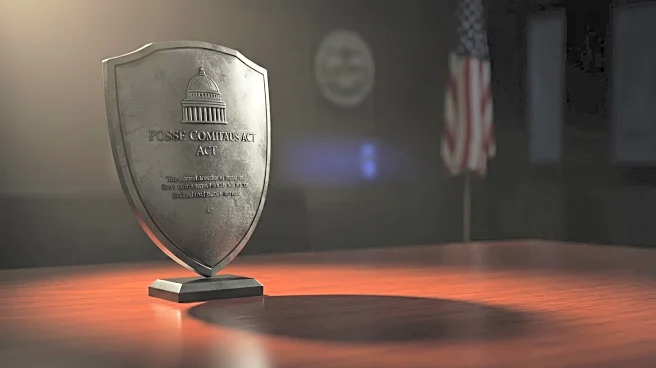What's Happening?
President Trump has deployed approximately 800 National Guard troops to Washington, D.C., claiming they are necessary to reduce crime in the capital. This action has sparked debate over the Posse Comitatus Act, a law from 1878 that restricts the use of federal troops in domestic law enforcement. The deployment follows similar actions in Los Angeles, where federal troops were used during protests against immigration raids. The legality of these deployments is being challenged in court, with arguments focusing on whether the Posse Comitatus Act has been violated.
Why It's Important?
The deployment of federal troops domestically raises significant legal and ethical questions about the balance of power between federal and state authorities. The Posse Comitatus Act is designed to prevent military involvement in civilian law enforcement, reflecting a long-standing U.S. tradition of civilian policing. The current situation tests the limits of this law and could set precedents for future military involvement in domestic affairs. The outcome of legal challenges could impact how federal and state governments interact, particularly in situations involving civil unrest or immigration enforcement.
What's Next?
Legal proceedings in California will likely provide a narrow interpretation of the Posse Comitatus Act's application, potentially influencing future deployments in other cities like Chicago and New York. The Trump administration's approach suggests a careful navigation of legal boundaries, which may lead to further judicial scrutiny and legislative action. Stakeholders, including state governments and civil rights organizations, are expected to continue challenging these deployments, seeking clarity on the limits of federal authority in domestic matters.









